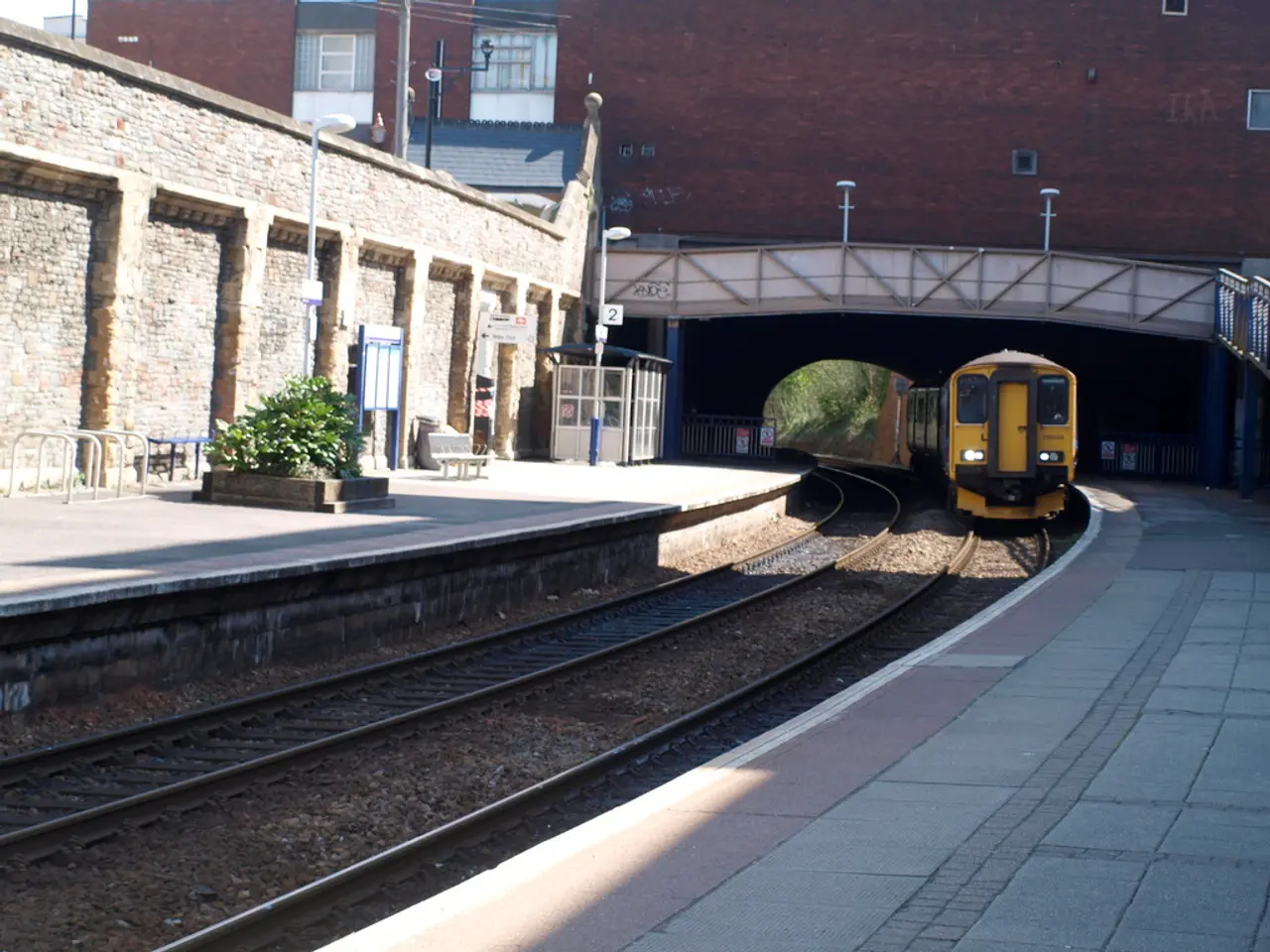Blueprint for Successful Community Development: Platform4 Shines as a Model Example
New Homes and Regeneration Project Announced Across England
The UK government has unveiled an ambitious plan to build 40,000 new homes over the next decade on surplus brownfield railway land across England. The initiative, led by a new company called Platform4, aims to transform underused railway sites into thriving communities that include homes, green spaces, shops, and hotels.
The project, estimated to cost around £1bn, will see major regeneration projects in cities like Manchester, Newcastle, Nottingham, and Cambridge. Platform4 was formed by merging the previously independent operations of London and Continental Railways Ltd and Network Rail’s Property Team to improve efficiency and strategic development.
The company will dispose of surplus rail land, attract private investment (expected to exceed £350 million), and accelerate community regeneration, aiming to generate an additional £227 million by delivering developments at greater pace and scale.
Four sites have already been earmarked for development as part of the project. The government has committed £1 billion to these developments, focusing on first-time buyers and working people wanting to rent or own property. Over 15,000 homes are expected to be completed within the next five years, supporting the government’s broader "Plan for Change" goal to build 1.5 million homes nationwide.
The project also aims to create thousands of jobs and boost local economic growth in the affected areas. Bek Seeley, a former leader of European development business for Lendlease, has been named as chair of Platform4, emphasizing the company’s commitment to creating sustainable places that foster community and economic development, leaving a positive legacy for future generations.
The plan has been welcomed by industry experts, including Richard Beresford, chief executive of the National Federation of Builders (NFB). Beresford described the plan as setting a new standard in placemaking, particularly for brownfield land around railway stations.
However, not everyone is in agreement. Rico Wojtulewicz, head of policy and planning at the NFB, has expressed concerns about the new scheme. Wojtulewicz's concerns center around the viability and ambition of the projects to succeed. He urges the government to explore community density, where projects are large in scale because they deliver all a community wants and needs.
Meanwhile, there are ongoing protests against asylum hotels across England, raising questions about the government's approach to housing and community development.
In a positive note, Leeds Art Gallery has partnered to deliver 'Kids Aloud', a program likely involving art and children, as part of the regeneration efforts in Leeds. The government's timescale indicates that the project is expected to take around a decade to fully complete.
References: 1. BBC News 2. The Guardian 3. Gov.uk
- The UK government's new regeneration project will see the creation of thriving community spaces on surplus brownfield railway land across England, with a goal of building 40,000 homes over the next decade.
- Platform4, the company leading the initiative, plans to attract substantial private investment, estimated to exceed £350 million, and dispose of surplus rail land to facilitate the development of homes, green spaces, shops, and hotels.
- The project is expected to generate an additional £227 million by delivering developments at a greater pace and scale, with four sites already earmarked for development that will provide housing for first-time buyers and working people.
- Some industry experts, such as Rico Wojtulewicz of the NFB, have raised concerns about the viability and ambition of the projects in the housing-market and real-estate sector, urging the government to consider community density in their planning.







